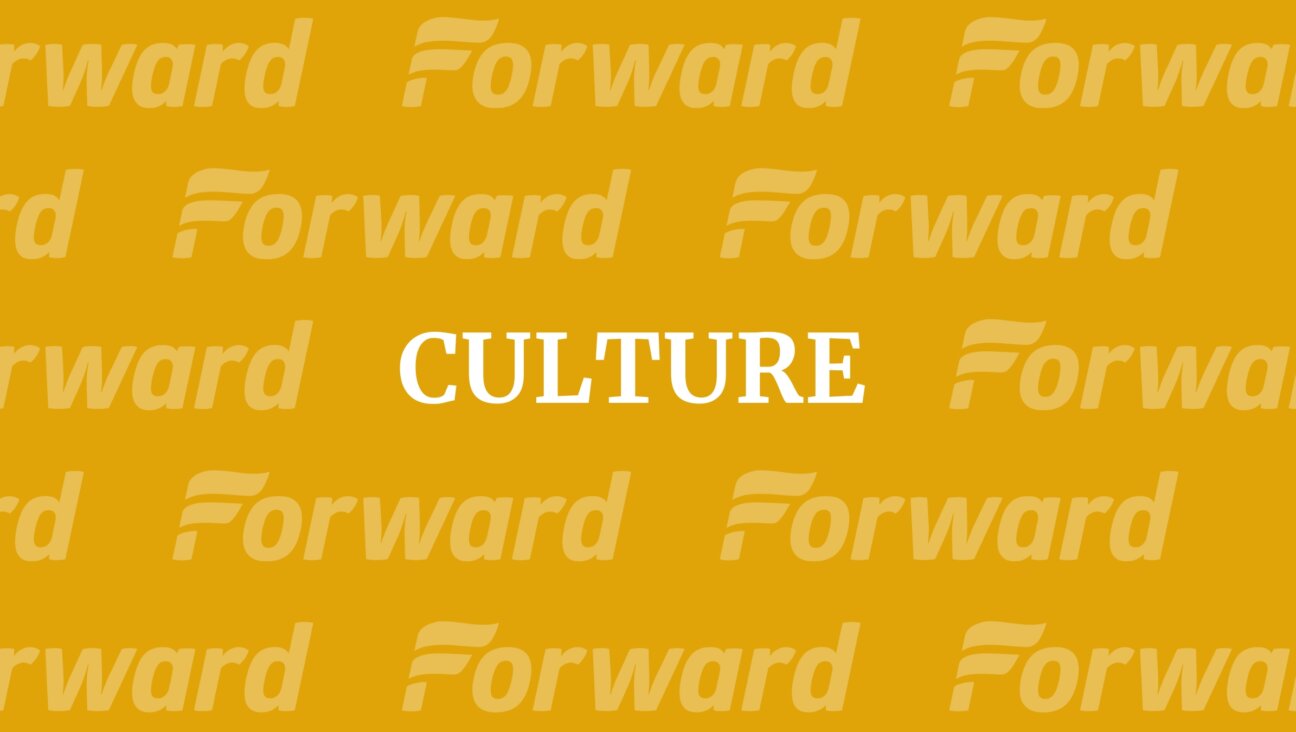Jeremiah Lockwood
By Jeremiah Lockwood
-

Culture The Nigun Project: Sing for Your Life
When I first came across this nigun in a mid-century Lubavitch anthology, the string of eighth notes that make up the first theme immediately suggested to me the beat for this arrangement. It sounded like a hip-hop beat to me. Through the happy collaboration with Dan Wolf and Tommy Shepherd, of the hip-hop collective Felonious,…
-

The Schmooze Mostly Marvelous Music in Boro Park
I was pleased to see a profile in the New York Times on July 20 of the unusual cantorial-music-aficionado-turned-audiophile-sound-engineer Mendel Werdyger. Werdyger is the proprietor of Mostly Music, one of the last bastions of old school Jewish culture in New York City. While you can certainly buy the standard schlock recordings of Hasidic boys choirs…
-

Culture The Nigun Project: From Our Hiding Places
“From Our Hiding Places,” this month’s installment of The Nigun Project, features Alexander Benaim, the singer and songwriter behind the indie rock band The Harlem Shakes. Benaim, a composer and writer, is now working on a solo project, which will draw on the sounds of his family’s Moroccan and Iranian origins. Benaim’s flair for creating…
-

The Schmooze ‘Stateless’: Dan Wolf and Tommy Shepherd’s Hip-Hop Vaudeville
One of hip-hop’s great strengths, and, frustratingly, part of what makes the art form so much of a generational divider, is the way in which the pursuit of both profundity and vulgarity are so brazenly juxtaposed against one another. The strength of poetic images and complex ideas in great hip-hop lyrics are almost universally embedded…
-

The Schmooze Sleepless in San Francisco: DAWN 2010
As a bit of a New York chauvinist, the intensity of the San Francisco art scene initially surprised me. The city is a delight to perform in. The crowds are fantastic and intelligent and surprisingly attuned to new Jewish culture. This affinity for experimentation with tradition was very much on display last Saturday night at…
-

Culture The Nigun Project: Melodies I Have Seen
While doing my research for the third installment of The Nigun Project, I discovered a melody in a Yiddish chapbook that was published in New York City in 1947. The book bears the striking title “Yiddish Nigunim I Have Heard…and Seen.” This magical little book, compiled by Moshe Gutman, constitutes a kind of testimonial and…
-

Culture The Nigun Project: At the Table
Listen to Jeremiah Lockwood and Brian Chase perform the second installment of the Nigun Project, “At the Table”: Part of my motivation for starting the Nigun Project — in which I reinterpret nigunim, with a range of musical collaborators — was to have a good reason to spend sizable chunks of time staring at old…
-

Culture The Nigun Project: Reb Nachman’s Nigun
Listen to Jeremiah Lockwood and Sahr Nguajah’s reinterpretation of Reb Nachman’s nigun Nigunim, or songs without words, were a crucial outward expression of the religious experience of the 18th-century Hasidic revivalist movement. The early Hasidim created a new and distinctly Jewish ritual act by singing these meditative and incantatory melodies in chorus with a community…
Most Popular
- 1

News What We Know About Jeffrey Epstein’s Childhood
- 2

News This Jewish Olympian prays with her mom before every race
- 3

Fast Forward Jewish congresswoman storms out of Epstein hearing after Pam Bondi raises her record on antisemitism
- 4

Culture What Carrie Prejean Boller tells us about Christian Zionism in the US
In Case You Missed It
-

Opinion The dark message behind Tucker Carlson’s attempt to drum up drama in Israel
-

Yiddish World Rediscovering the ‘Dybbuk’ composer Henokh Kon
-

News She’s a Democratic Socialist who affirmed Israel’s right to exist. Can she be LA’s next mayor?
-

Yiddish פֿאָרווערטס פּאָדקאַסט, קאַפּיטל 6: שפּראַכן אין אַ סכּנהForverts podcast, episode 6: At-risk languages
דאָ וועט איר הערן דעם אַרטיקל, „וואָס אַקטיוויסטן פֿאַר שפּראַכן אין אַ סכּנה קענען זיך אָפּלערנען איינער פֿונעם אַנדערן.“
-
Shop the Forward Store
100% of profits support our journalism




